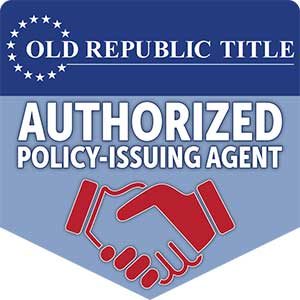Navigating the world of title insurance and title companies can be an overwhelming experience, especially when it’s compounded with the already-considerable stress of buying a home. Making matters worse, it can also be quite confusing for those who are not already familiar with the process and what goes into it.
To help alleviate some of the turmoil, worries and lingering concerns associated with the process, it’s in your best interest to ask your title company at least a few questions.
Whether you’re seeking the right title company for your needs, or reevaluating one you already have, asking the following questions of a given company will help you make the right decision about enlisting their services.
What Are Their Title Insurance Rates and Fees?
This is an obvious question, but also a good one. Title insurance rates and associated fees can vary for a multitude of reasons, such as your state or the value of your home, and having a full understanding of what these costs may (or can) be is critical for the decision-making process.
What Does the Policy Cover?
Knowing what exactly your policy covers is extremely important, so make sure you get as many details as possible from the title company. Knowing what is, and what is not, covered will give you an edge when it comes to making educated designs or being adequately prepared for certain scenarios.
Are My Money and Investments Safe?
Purchasing a home is one of the biggest investments a person can make in their lifetime, so it makes sense to be absolutely certain that your money and investments are safe. You’ll want to know how your escrow funds are handled, for example, or if the title company has implemented the appropriate safeguards and effective controls needed to protect your funding. Do not be afraid to ask these important questions; you need to know that the title company can be trusted with your money.
How Long Does A Title Search Take?
While this entire process can be stressful, there are few elements as nerve-wracking as trying to complete every necessary step before being hit by an immovable deadline. You’ll want to know how long a title company’s title search process can take so you can have an idea of what kind of timetable you’ll need to adhere to.
How Experienced Are Their Title Insurance Attorneys?
Considering that a title company’s attorney determines whether or not you can legally take a property’s title, it’s very important that you make sure that they have the necessary levels of experience. If trouble appears, you won’t want rookie lawyers at your side.
Does Their Title Company Follow The Title Industry’s Best Practices?
The American Land Title Association (ALTA) has created a set of guidelines that lay out the “best practices” for the title industry, which are meant to ensure that title companies have policies that protect both lenders and consumers. Finding out whether your title company adheres to these practices is a crucial step in making sure you can trust them to have your best interests in mind.
Does The Title Company Belong To Any Professional Associations?
Title companies that belong to professional associations (such as ALTA) are typically of higher regard than those that do not. Although membership in these types of associations is not a foolproof indicator for a title company’s quality, it is still a good gauge.
Are They a Neutral Party and/or Locally Owned and Operated?
Determining if a title company is a neutral party, devoid of any conflicts of interest, is one way to help weed out unscrupulous companies, as is finding out if they are locally owned and operated, which implies that they do not outsource their work.
Businesses are required to disclose this information, as per the Real Estate Settlement Procedures Act (RESPA), and while it’s true that being neutral or locally owned doesn’t necessarily guarantee trustworthiness, the answers to these questions have served as reliable and accurate indicators for quite some time.
Lastly, and in addition to the reasons listed above, another benefit of hiring a locally owned and operated title company is that they are familiar with the local landscape, its laws and its idiosyncratic particulars, meaning that they might know how to serve your needs better than a large scale, nationwide firm.





